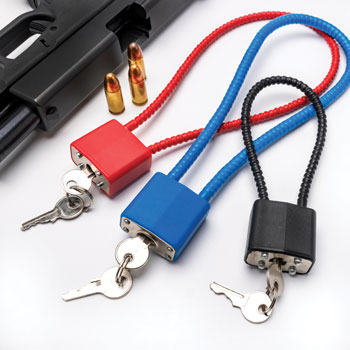Forum focuses on preventing firearm injury
During “Firearm Injury: An Escalating Health Crisis,” a panel of experts discussed what health care professionals can do to reduce the adverse impact of guns on patients' health.
Firearm injury may seem like a departure in topic from previous ACP/Annals of Internal Medicine Virtual Forums, which have covered COVID-19 and mpox. But guns are just as urgent a public health issue, said Christine Laine, MD, MPH, FACP.
“Almost 50,000 people in the U.S. lost their lives to guns in 2021. An infectious organism responsible for that many deaths would clearly be considered a public health threat,” said Dr. Laine, who is Editor-in-Chief of Annals and a Senior Vice President at ACP.

The Jan. 11 forum “Firearm Injury: An Escalating Health Crisis” discussed what health care professionals can do to reduce the adverse impact of guns on patients' health, with a panel of experts responding to case-based vignettes and to questions from the virtual audience. Sue S. Bornstein, MD, MACP, Chair of ACP's Board of Regents, executive director of the Texas Medical Home Initiative, and co-lead of the Texas Primary Care Consortium, moderated the discussion. A recording of the forum and accompanying commentary were published by Annals on Jan. 17 and are online.
The first vignette involved a woman with poorly controlled hypertension whose aging parents and 5-year-old grandson had recently moved in with her. Her father, who had dementia, had become paranoid, wandering through the house at night believing there was an intruder. When asked what to include in the initial evaluation of the patient, 58% of the audience chose an EKG, 78% said lab tests, and 15% said sleep medications; 74% would ask about guns and safe storage, and 37% would ask about guns and advise removal. But panelist Thea L. James, MD, MPH, MBA, had an entirely different answer.
“The way that I practice, if I encountered this patient, my initial evaluation wouldn't include any of the options presented,” said Dr. James, who is vice president of mission, associate chief medical officer, an associate professor of emergency medicine, director of the Violence Intervention Advocacy Program, and co-executive director of the Health Equity Accelerator at Boston Medical Center. “My actual first response would be to acknowledge her and acknowledge her situation, especially with respect to the impact it might be having on her.”
Dr. James advised listening to the patient, asking what she thought it would take for her situation to improve and stabilize, and focusing on what matters most to her. “Depending upon how the conversation actually goes, I don't know if I would ask anything about a gun question in this situation,” she said. “But I would certainly be looking for clues for that.”
Marian (Emmy) Betz, MD, MPH, noted the importance of addressing firearm storage in discussions of patients with dementia, since it may be hard for caregivers to consider that a loved one could ever pose a safety risk. “I think our role as health care providers can be to provide resources, places for people to have those more in-depth conversations, without telling them exactly what they should do, but at the same time helping them be aware of what they can do to make their environments safer,” said Dr. Betz, who is a professor of emergency medicine at University of Colorado School of Medicine in Aurora.
The second vignette discussed a long-term patient who had been recently fired from his job, had reported suicidal ideation, and was known to have guns in the home. Most of the audience, 55%, recommended asking the patient how his guns are stored and referring him to a psychiatrist and using an extreme risk protection order to remove his guns if his suicide risk is deemed high.
“As clinicians, what we're probably trained in is get him to psychiatry, get him to a psychologist, get him on [a selective serotonin reuptake inhibitor], whatever it is, just sort of treat the medical cause,” Dr. Betz said. “It's also really important that we as clinicians address the firearm access piece, because we know that having a safe environment is critically important for people to get better, to get through that period of risk.”
She recommended that the clinician engage the patient in decisions about his own treatment plan—asking him if he has someone he trusts who can hold on to his guns for him, if his wife can change the passcode to his gun safe, or if it's possible to place the guns in storage. “If none of those things work … depending on the state that you live in, then it might make sense for the clinician if it's possible, or for the wife, or for law enforcement to pursue an extreme risk order, but we always want to try the voluntary approaches first,” Dr. Betz said.
The third and final clinical vignette presented a patient who had lost her older son to gun violence and was afraid of losing her younger son in the same way. “This is a very difficult dilemma for a lot of families,” said Scott P. Charles, MAPP, a trauma outreach coordinator at Temple University Hospital in Philadelphia. “We see so many homicides in our emergency department, and one of the concerns that's expressed almost immediately is a concern or the implications for other children in that household, particularly teenagers, adolescents, and young adults, and how they're going to respond to these acts of homicide.”
Mr. Charles said his first step would be to connect the patient and her son to programs and resources that assist people affected by gun violence. “One of the goals is to make sure that the individuals who live in the communities that we serve are taking advantage of those resources. Historically, the folks who are living in Black and Brown communities have not been able to take advantage of the resources through [the Victims of Crime Act] and other programs,” he said.
Dr. James is a founder of one such resource, the Health Alliance for Violence Intervention (HAVI), a network of 40 to 50 hospital-connected programs that offer housing, mentoring, workforce, mental health, and other support to people affected by gun violence. “What they do is form a relationship and a rapport, a trusting relationship, with victims of violence as well as their families, depending upon how the individual programs are designed,” Dr. James said. “Its goal is to understand who these victims are, to understand what matters to them, and to alter their life course trajectory.” HAVI is hospital-based but can also be a resource for outpatient clinicians, she said.
Dr. Bornstein pointed out that although a majority of Americans, 66% in a 2019 survey of 4,000 adults published in May 2021 by Annals of Internal Medicine, say they believe it's appropriate for a clinician to counsel patients about guns, only 7.5% report receiving such counseling. “There's a gap there,” she said. “There's a lot of reasons why physicians are uncomfortable. … It's not something that you just barge in there and start talking about, generally speaking.”
Dr. James recommended being clear why you're asking about guns, and Dr. Betz agreed. Clinicians can start by asking if the patient has firearms and, if so, how they are stored. “Or I may just say, ‘How are your guns stored?’ if I want to just make an assumption that everybody has guns, or perhaps even more pointedly, ‘Do you have access to any guns where you're living?’” Dr. Betz said. “I have never had anyone get mad at me for that question.”
Dr. Betz noted that patients are often concerned their answers will be included in documentation or in the medical record, and in these cases, physicians can counsel rather than ask. “If, say, it's a family with kids in the home, and you want to make sure that they know they should lock up guns, you can just provide the same counseling: ‘We always recommend that kids don't have access to guns, so if there are guns where they live or play, it's a good idea that they're locked up.’ Then move on. You can document that you've provided counseling, but you're not asking them a direct question, and that might reduce some of the hesitancy in that relationship.”
Temple University Hospital is using a version of this approach by providing free gun locks and information to patients in the ED, no questions asked, Mr. Charles said. “There's a tremendous amount of distrust and fear that if anybody knows that the family member has a firearm in the home, that this could have some implications for you, or [the Department of Human Services], or Child Protective Services, depending on where you live,” he said.
Going forward, Dr. James stressed the need for more qualitative research that involves people who have been affected by firearms. “We need to understand the root causes, and until you're able to interrogate the data with some context, we're just going to be rolling the dice,” she said. “Our greatest opportunity for getting closer to that is to ask the people who are experiencing these things. … Quite frankly, I could not imagine even beginning the conversation without having them at the table.”





